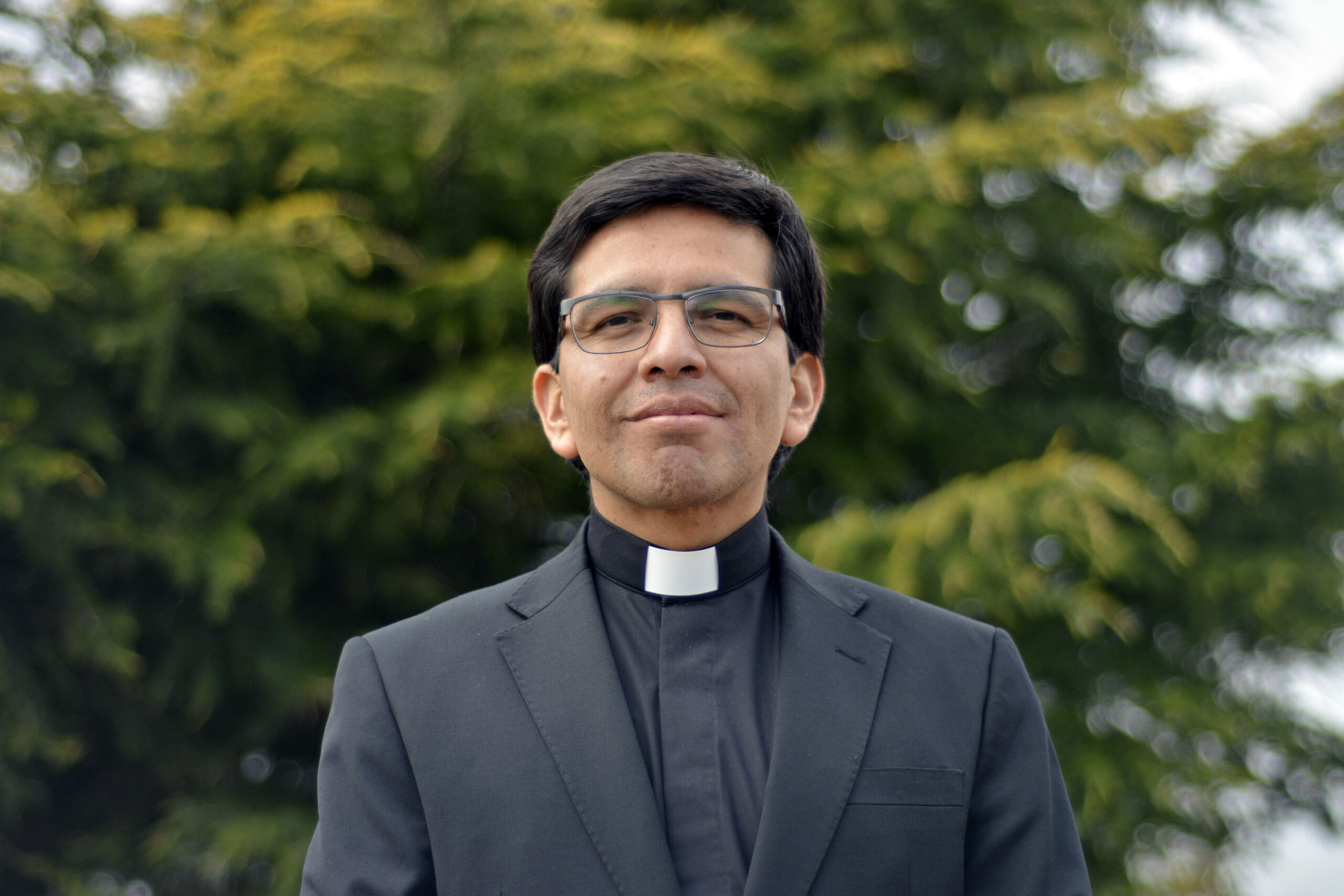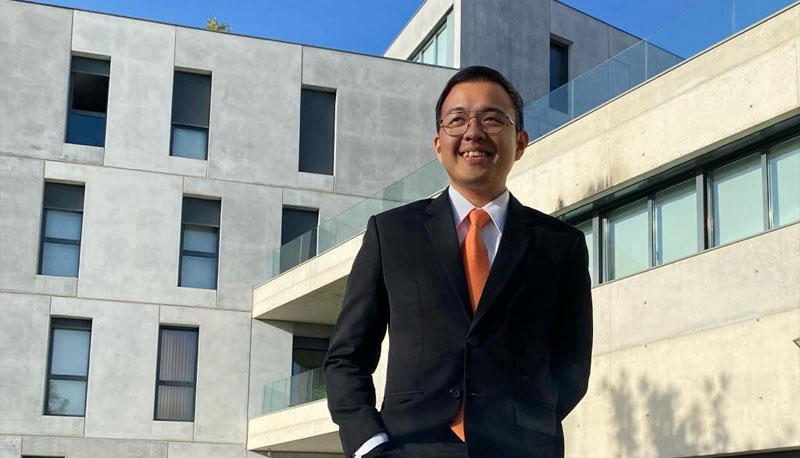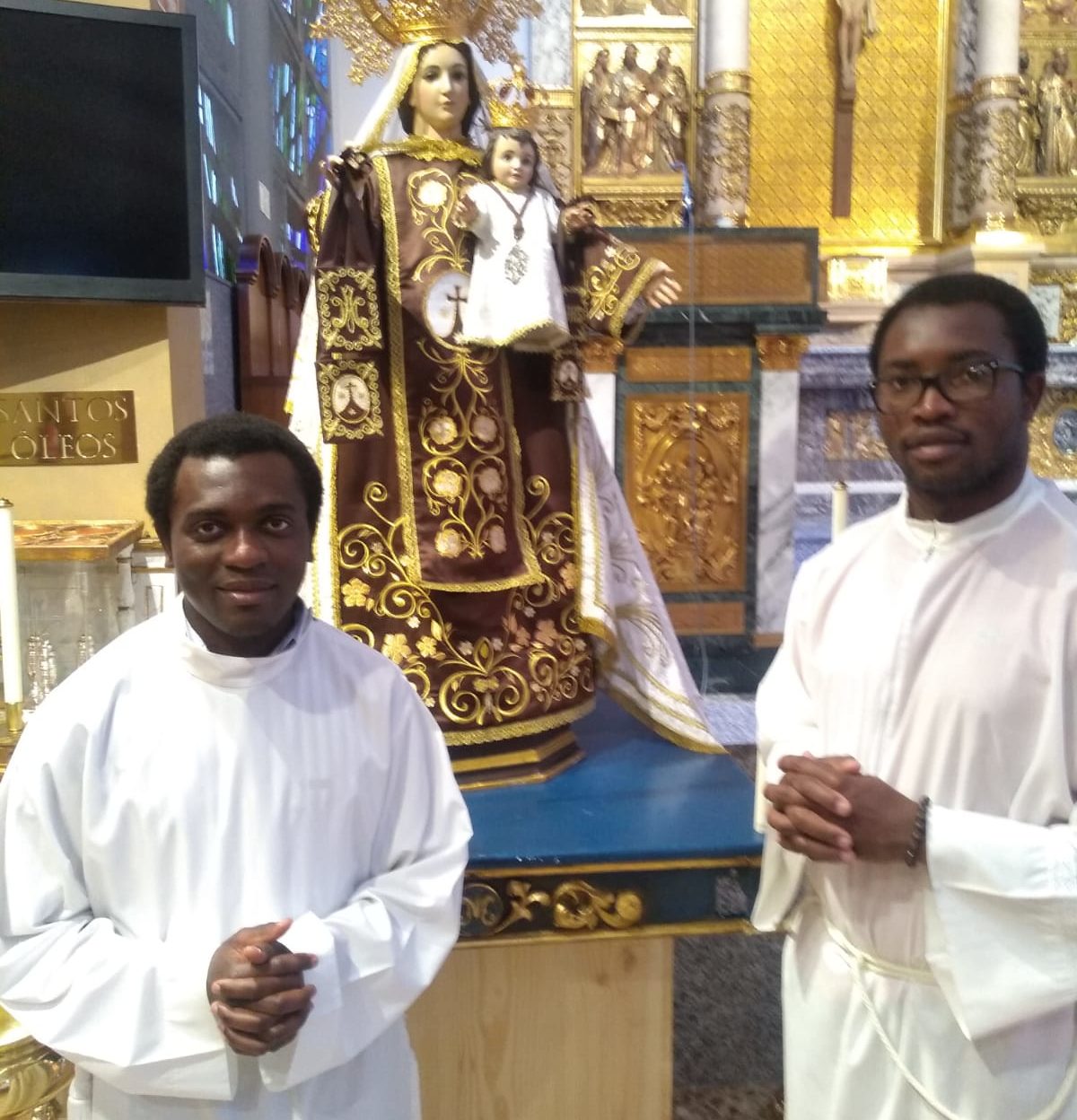
Sylvestre Marcel Ndongo and Pius Messongon are two seminarians from Cameroon who are finishing their studies in the Ecclesiastical Faculties of the University of Navarra. After a few days in Madrid doing pastoral work, they are leaving for their country after several years of formation, where they will be ordained first deacons and then priests.
In this interview for CARF, they talk about the situation in their country, religious freedom, conversions in Africa, what Spanish and European Catholics should learn from the African continent and vice versa.
Sylvestre Marcel Ndongo is a Cameroonian seminarian 31 years old. He grew up in a Catholic family of six siblings, three girls and three boys. He is the third.
For him, the wonderful thing in his life came when he found his vocation, which he defines as a passionate story with Jesus through his Mother, "to whom I owe the miraculous healing of a strange illness that had bothered me for many years without finding a cure".
His mother spent a lot of money in hospitals seeking a cure for her son. And in the end, Our Lady heard her prayers. "If there was a starting point for my vocation I would say it was my miraculous healing by invoking the Virgin Mary of Nsimalen to cure my strange disease. When I was healed, I decided to enter the seminar to give my life to the Lord and help those who want to know God".
God called him when he was studying for a university degree. At first his father and some of his siblings did not understand his vocation.
If he could choose, he would like to be assigned to the poorest place where people reject God "to tell them about my personal experience".
On the other hand, he would like to be a priest loved and not feareda helpful priest. "I believe that one of the causes of the fall of faith in the West is due to the distancing between faithful and priests, at least some decades ago. Now, after four years in Spain, I observe that there is such a fraternity between priests and Catholics".
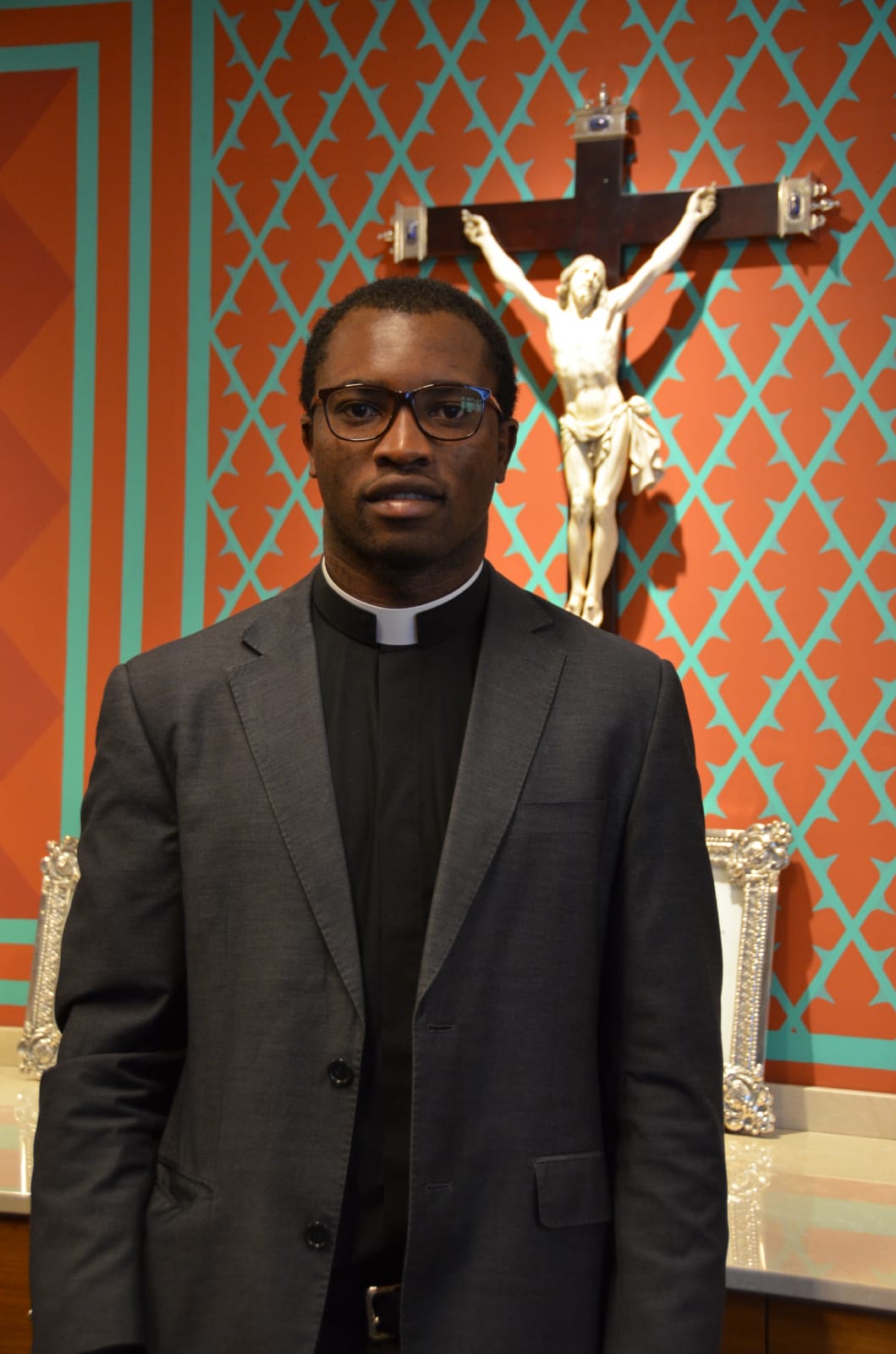
Sylvestre Marcel Ndongo, 31, is a seminarian from Cameroon who grew up in a Catholic family of six siblings, three girls and three boys. He is the third. After many years suffering from a strange illness with continuous hospital visits and family expenses, he tells how Our Lady of Nsimalen healed him. "When I was healed, I decided to enter the seminary to give my life to the Lord and help those who want to know God."
Pius Messongon is studying the fifth year of the Bachelor of Theology at the University of Navarra and is one of the students from Cameroon who are being trained thanks to the CARF Foundation. He is thirty years old. Since July 2016 he has been living in the Bidasoa International Seminar.
He is the only male of seven siblings. Both parents are Catholic: "I have had the grace of having a father who is firm about religion," he says.
Since he was a child, he thought about becoming a priest, although he had doubts during his adolescence. "I thought it was impossible to enter the seminary because of family difficulties and without resources to pay for this formation that lasts many years." But in the end, resources were always found.
The formation of his parish priest who preached very well and that helped him defend his faith in front of his peers or friends who were not Catholic, were small experiences that were engraved in his heart.
"The most important mission of the priest is to be at the service of God. and of his brothers and sisters. So I will be open to the will of my bishop, and wherever he sends me I will gladly go, whether in a parish or in another pastoral service of the diocese. I intend to be a priest who lives fraternity with his faithful. In my country, in general, parish priests feel like members of a family that needs them for their mission as shepherds, their advice, spiritual accompaniment, etc. In general, the faithful welcome, respect and help priests as in many places in the world".
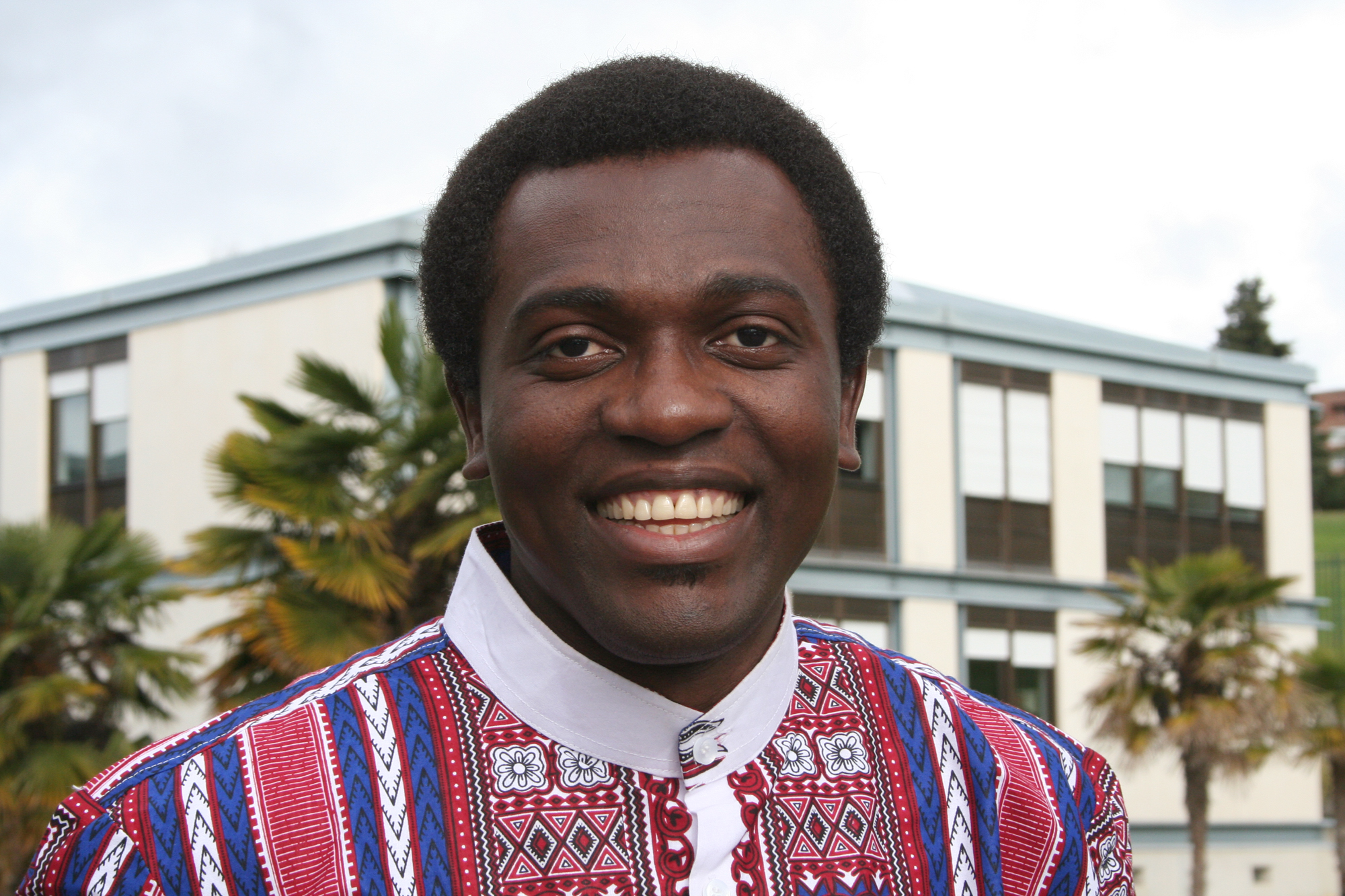
Pius Messongon is 30 years old, studying the fifth year of his Bachelor's Degree in Theology at the University of Navarra and is one of the students from Cameroon who are being trained thanks to the CARF Foundation. He is thirty years old. Since July 2016, he has been living at the Bidasoa International Seminary. He is the only male of seven siblings. Both his parents are Catholic. From an early age he considered becoming a priest, although he had had doubts during adolescence. "I thought it was impossible to enter the seminary because of family difficulties and without resources to pay for this formation that lasts many years." But in the end, the resources were found.
Cameroon is a secular country with diverse religions and there is freedom of religion and worship. 40% of the inhabitants of your country are Catholics. and 70% Christians of other religions. Catholics live in what are called communities or associations that help the new evangelization and the very active participation of the faithful. It is a country where more temples are needed. Cameroonians, like Africans, are naturally religious men and women.
Sylvestre warns that secularization is also coming to Africa. And he laments the inconsistency of life of some representatives of God that influences the religious indifference of many young people. "That is why the formation of seminarians and priests is so important, to be able to give answers to many of today's young people".
Regarding the difference between Catholics in the West and Africa, he considers that Christians in Europe, at this time, are so by conviction and not by tradition. "It is the Christianity of experience. This is what I have seen in Spain. I believe that in Africa we have not reached this level. It is true that there are also many faithful out of conviction, but the vast majority follow a Christianity that has to mature".
In this line he says that the priests of his country should learn humility and simplicity from the Spanish priests. Avoid vainglory and the honors of this world. "And the other way around, I believe, that the priests of Europe and Spain in general should avoid what is called being politically correct."
"Jesus did not live in political correctness. Here, sometimes priests say things to please their listeners. All priests, whether from one continent or another, have to be consistent," he says.
Pius also believes that Spanish and European Catholics can learn from the Catholics of Cameroon what can be called "the most important thing to learn from the Catholics of Cameroon. the experience of the joy of faith.
Conversely, the Catholics of Cameroon should learn from the Spanish and Europeans that faith and reason go together. "They are two realities at the service of the human being and must remain united and guarantee an integral development of the person."
Regarding the conversions of Catholics in Africa, both consider that this is due to the work of the Catholic faithful. who proclaim the Gospel more by their witness of life than by their words.
"It also seems to me that it is due to the effort that many priests maintain to announce the Gospel in truth. They have the courage to be prophets of our present society and this gives more credibility to the Catholic religion. For, where there is love for the truth of the Gospel, there is also Jesus Christ, and his presence makes the pastoral work fruitful and is a grace for the whole Church", they conclude.
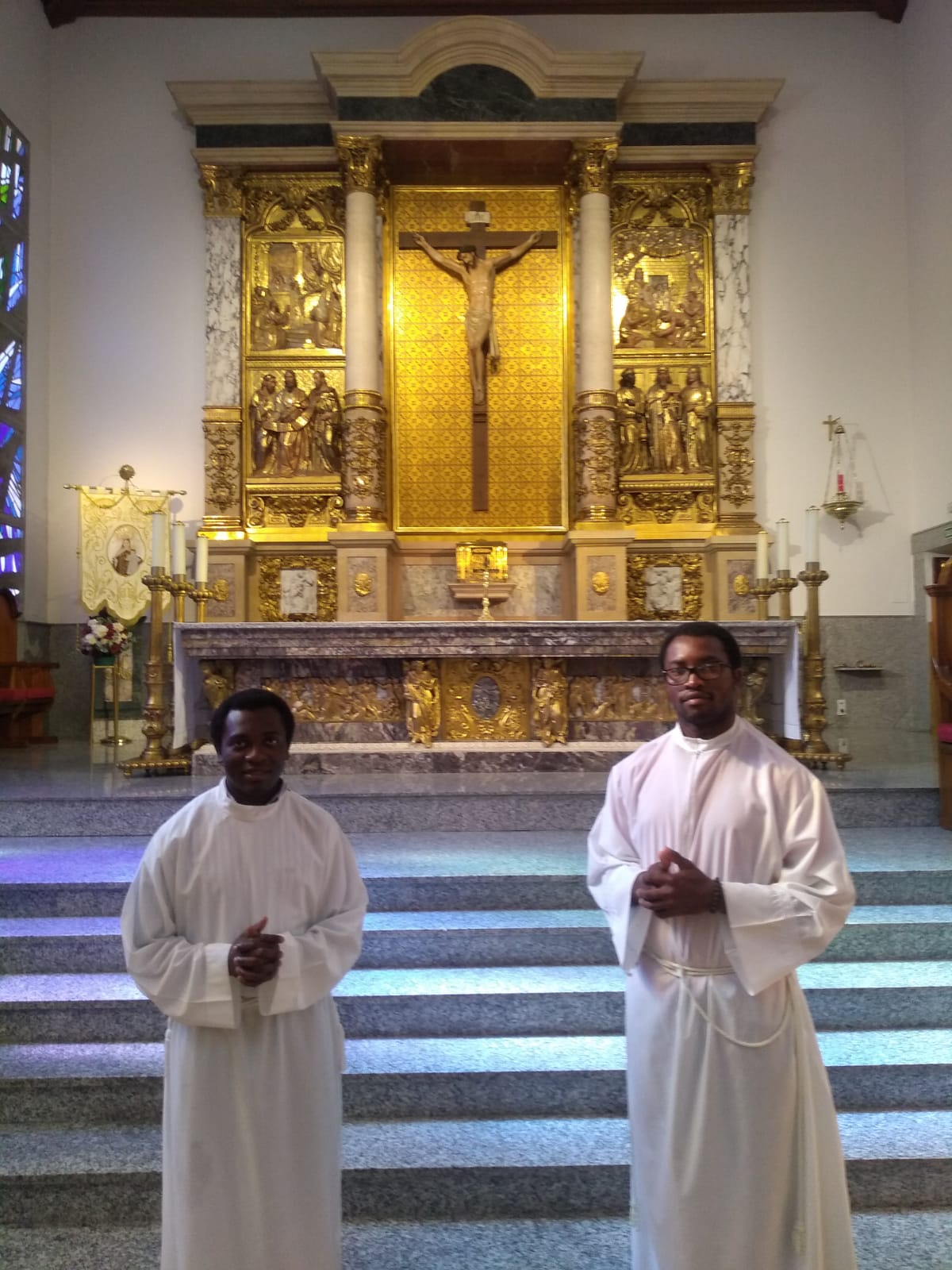
Sylvestre and Pius have done pastoral work in the parish of Nuestra Señora del Carmen in Pozuelo (Madrid). After finishing their studies at the Ecclesiastical Faculties of the University of Navarra and after several years of formation, they are leaving for their country where they will be ordained first deacons and then priests. They ask for prayers from all the benefactors and promise them that they will always pray for CARF.
Marta Santín is a journalist specializing in religious information.
